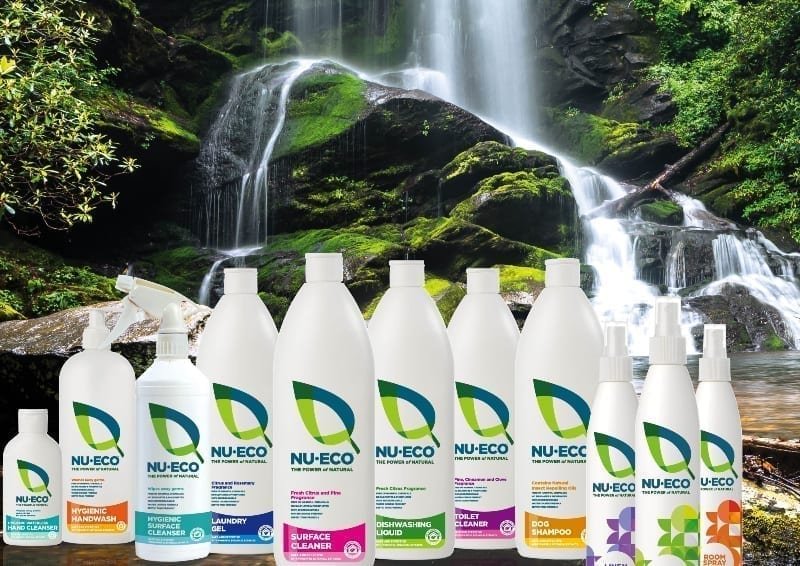This article first appeared in our autumn ’18 issue of MyGreenPod Magazine, The Consumer Revolution, distributed with the Guardian on 16 Nov 2018. Click here to subscribe to our digital edition and get each issue delivered straight to your inbox
We’re all waking up to the dangers of microplastics, but while the fight is on against the single-use plastics that break down into these tiny fragments that endure on land and in the oceans, there’s less talk about the toxic chemicals they attract.
Microplastics act like magnets, attracting pollutants from the environment. When microplastics are ingested, says Mark Anthony Browne, a postdoctoral fellow at NCEAS, common chemical pollutants such as nonylphenol (used in the manufacture of laundry and dish detergents) enter the tissue of the creature that ate the plastic.
Everyday household chemicals pose a threat to aquatic life even without microplastic carriers. Surfactants, which are used to remove dirt from clothes, skin and surfaces, reduce water tension and allow other pollutants to be more easily absorbed by plants and animals. The fertilising effect of phosphates in laundry and dishwasher detergent can trigger algal blooms that starve water of oxygen and have a negative impact on biodiversity.
Even those of us who are trying to go natural with our household products could unknowingly be flushing harmful chemicals into the sea and the food chain.
The cost of the ‘wow’ factor
‘There’s a lack of awareness and education’, says Andrew East, managing director of Nu-Eco, an operating division of Skyhawk Global Ltd. ‘People simply don’t know about the harmful effects of some common household products.’ In some cases there are no excuses; caustic chemicals – such as sodium hydroxide and potassium hydroxide – should be avoided at all costs, and EU legislation requires some packaging to carry warnings that the formula inside is ‘harmful to aquatic life, with long-lasting effects.’
But in other cases the label doesn’t help at all. ‘An example of this is the term ‘saponified coconut oil’, Andrew tells us. ‘What they don’t tell you is that sodium hydroxide is used in this process.’ Some ‘eco’ companies also manufacture products with only 85% natural ingredients, the threshold at which they can be advertised as ‘natural’.
It seems criminal that these products are available at all – let alone sold at scale. A lot of it comes down to manufacturing costs and profits. ‘The most cost-effective chemicals are the ones that give the product its punch, like surfactants’, Andrew tells us. ‘They improve the efficacy of the product, giving them that ‘wow’ factor, but they are usually also bad for the environment.’
Every year we spend millions on mainstream household cleaning products, expecting them to fight germs, streaks, stains and odours. Could natural products deliver the same results? ‘Yes and No’, admits Andrew. ‘A good example is the Nu-Eco dishwash liquid. We believe it’s as effective as – though more expensive than – the Nu-Eco auto-dishwash product that we’re currently working on. A year later and the formulation still can’t perform as well as the ones on the shelf, but the standard auto-dishwash products contain some real nasties; they rank among the most harmful housekeeping products found in your home. We believe that with more work, our 100% natural formulations can be just as effective as their chemical counterparts.’
 Play Video about This Rock Might Just Save The World
Play Video about This Rock Might Just Save The World Play Video about Play 2 hours of rock
Play Video about Play 2 hours of rock Play Video about Play 2 hours of brook
Play Video about Play 2 hours of brook Play Video about Play 2 hours of sheep
Play Video about Play 2 hours of sheep











































